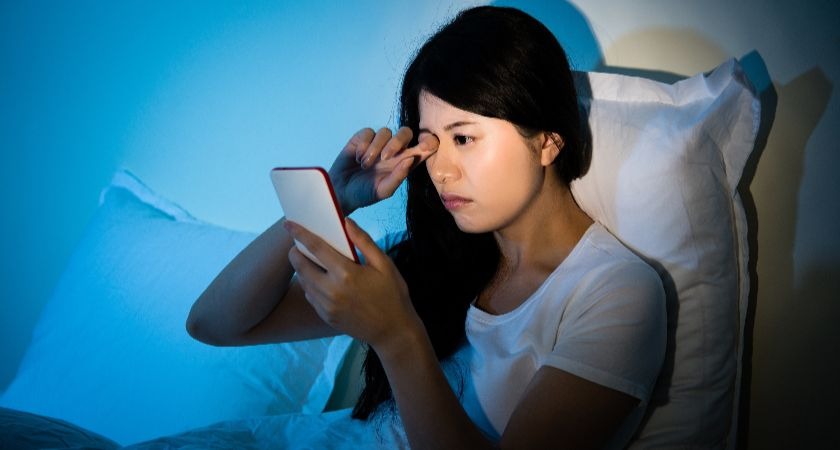THE BLUE light emitted from smartphones, laptops and a wide variety of digital devices not only damages your vision but can actually speed up blindness.
That's the warning being offered up by researchers from the US who found that prolonged exposure to blue light can lead to the generation of poisonous molecules in the eye's light-sensitive cells.
These molecules have been found to have a direct link to incurable macular generation, leading to a loss of vision.
More generally this blue light can gradually cause lasting damage to the eyes due to the fact it works on a shorter wavelength and contains more energy than other coloured lights.
The findings came as part of research conducted by the University of Toledo.
Dr Ajith Karunarathne, an assistant professor in the university's Department of Chemistry and Biochemistry and a key research on the project, said:
"We are being exposed to blue light continuously and the eye's cornea and lens cannot block or reflect it. It's no secret that blue light harms our vision by damaging the eye's retina.
"Our experiments explain how this happens, and we hope this leads to therapies that slow macular degeneration, such as a new kind of eye drop."

Macular degeneration vision loss presently affects a small proportion of the adult population and is commonly found among those in their 50s and 60s.
Caused by the death of light-sensitive cells in the retina, while it doesn't result in total blindness the condition can make things like reading and recognising faces difficult.
The research found that exposure to blue light leads to the development of toxic molecules in the photoreceptor cells needs to sense light and trigger signals to the brain that enable us to see.
Kasun Ratnayake, a Ph.D. student involved in the study, said:
"If you shine blue light on retinal, the retinal kills photoreceptor cells as the signalling molecule on the membrane dissolves. 'Photoreceptor cells do not regenerate in the eye. When they're dead, they're dead for good."
The study also showed how the introduction of retinal molecules to other cell types like heart and cancer cells caused them to die off when exposed to blue light.
"The retinal-generated toxicity by blue light is universal. It can kill any cell type," Dr. Karunarathne said.
Researchers discovered that a molecule and natural antioxidant called alpha-tocopherol stopped cells from dying but ultimately failed to provide protection to elderly suffers whose immune systems might have been surprised.
Dr. Karunarathne urged anyone concerned to wear sunglasses that filter UV and blue light and to avoid browsing on digital devices in the dark.
More information on the study can be found in the latest issue of Scientific Reports.

